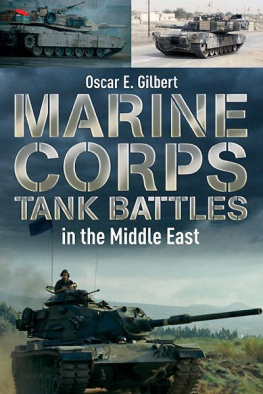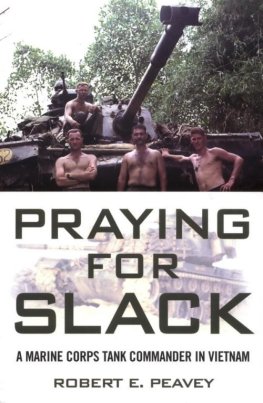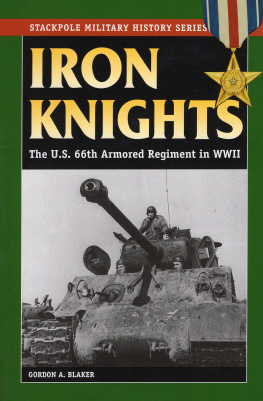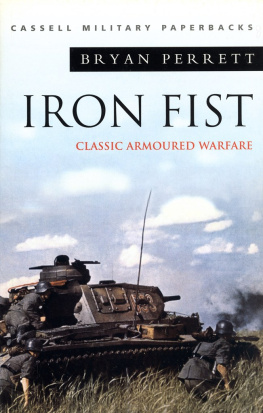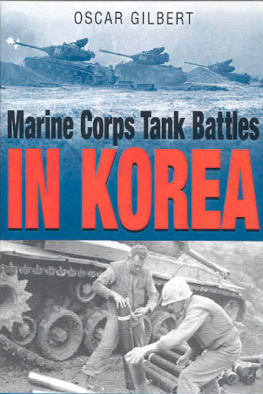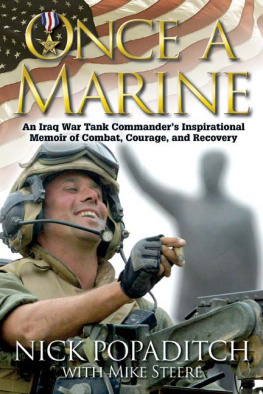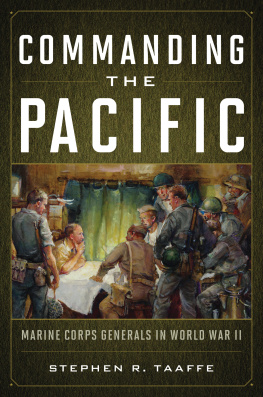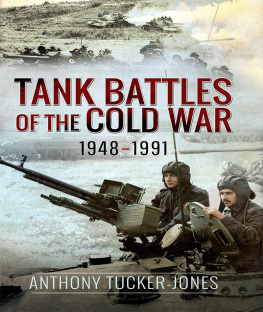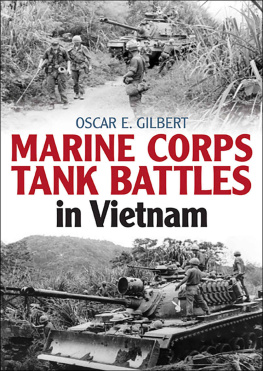
Published in the United States of America and Great Britain in 2015 by
CASEMATE PUBLISHERS
908 Darby Road, Havertown, PA 19083
and
10 Hythe Bridge Street, Oxford, OX1 2EW
Copyright 2015 Oscar E. Gilbert
ISBN: 978-1-61200-267-5
Digital Edition: ISBN 978-1-61200-268-2
Cataloging-in-publication data is available from the Library of Congress and
the British Library.
All rights reserved. No part of this book may be reproduced or transmitted in any
form or by any means, electronic or mechanical including photocopying, recording
or by any information storage and retrieval system, without permission from the
Publisher in writing.
10 9 8 7 6 5 4 3 2 1
Printed and bound in the United States of America.
For a complete list of Casemate titles please contact:
CASEMATE PUBLISHERS (US)
Telephone (610) 853-9131, Fax (610) 853-9146
E-mail:
CASEMATE PUBLISHERS (UK)
Telephone (01865) 241249, Fax (01865) 794449
E-mail:
For Oscar E. Gilbert IV and Levi D. Gilbert
Preface
F OR MOST OF HUMAN history wars have been poorly documented, their stories passed down as oral histories or recorded in the self-serving memoirs of leaders. Only after World War II did the recollections and memoirs of those in the ranks became commonplace, and historians could delve more deeply into the documentation that resulted from burgeoning bureaucracies and the proliferation of typewriters. But secrecysometimes warranted, often notstill cloaked much. The roles of the Native American code talkers and the successes of the code-breakers that allowed the Allies to read Axis communications remained secret for decades. On the whole societal norms, official censorship, and self-censorship by the press contrived to limit public view of the worst of the blunders and horrors. The disaster of the D-Day rehearsal at Slapton Sands off the English coast never happened. The botched indirect approach strategy of the 1943 New Georgia campaign (with its alarmingly high incidence of psychiatric casualties) was just too embarrassing.
The war in Korea was largely just ignored. It was called the Forgotten War for a reason.
Vietnam marked a seismic shift in our perception of war. Tens of thousands of highly-educated men and women were inducted (often unwillingly) at the same time that press censorship disappeared almost entirely. The result was an in your face war where carnage and death were splashed across the television screen at the dinner hour. Military leadership fell into disrepute, and the good suffered alongside the incompetent.
In the more recent GulfWars and the so-called war on terrorism (2001 to present) the ground shifted again. Modern wars are at once recorded in minute detail, yet poorly understood. Twenty-four-hour news coverage bombards the reader-viewer with flashing images and mind-numbing minutiae, but provides little real understanding. Frequently the necessary cloak of operational secrecy convolved with the medias compulsion to get the story on the air now results in a superficial understandingor complete misunderstandingof events that becomes embedded in millions of minds as history.
The professional military analyst (I am not one) is now drowned in a flood of data from computers, recorded message traffic, mapping and locator programs, paper records, and even old-fashioned interviews that can take years to sort through. Much has yet to be declassified, and it will again take decades before these wars are properly and dispassionately evaluated.
A new innovationsocial mediaresulted in another flood of more personal information: e-mails, websites, blogs, and postings. Much of it is ephemeral, and will simply disappear like the burned letters and diaries of another era.
Yet some things have remained fundamentally unchanged. Modern misconceptions to the contrary, veterans of World War II and Korea were underappreciated in their own time. They returned amid economic booms when everyone (veterans included) was experiencing an economic boom and an unprecedented rise in the standard of living. Vietnam veterans disappeared because the war was unpopular, and the unpopularity unfairly rubbed off on those who fought there.
Like Vietnam, public attitudes toward the wars of the late twentieth and early twenty-first centuries are influenced by social changes beyond the wars.
The more recent wars are different in some ways, but many fundamentals have not changed. The military in general is held in higher esteem, and even the most judgmental anti-war activists will balk at judging the individual warrior with the war. Our military is far more professional, but that professionalism has come at a cost. A sort of invisibility.
Our modern wars are fought by a small and chronically overextended minority of the population. Its the simple arithmetic of Americas longest war. On the whole the seven years of the Vietnam war were fought by a succession of men serving a single twelve- or thirteen-month tour each. Americas longest war has been fought by men and women who have done multiple tours; four or more are not uncommon. And they volunteered for it, so we think we need not concern ourselves overly much.
At the same time the entertainment mediaparticularly television and video games, but to a great degree filmshave desensitized the public to the violence. The news media do a better job, but the current may be disturbing to some viewers warnings and presentation of videos of cold precision drone strikes is its own form of sanitization. Far more influential are the entertainment media.
If previous generations of the entertainment media sanitized violence and war, the current generation revels in it. Wanton violence that would have nauseated older generations of movie-goers and television watchers (just ask your grandmother) is all too often used to divert schoolchildren while mom prepares dinner. A few presentations, particularly films like Blackhawk Down, The Hurt Locker, and Lone Survivor provide a realistic and often highly emotional approximation of the violence of war. But television and video games just wallow in the firepower and gore for its own sake.
The result is an odd confluence of attitudes and circumstances. Our wars are fought by a better-respected but shrinking minority, and the population as a whole thinks it understands the experiences of that minority. But such attitudes are illusory. Seeing combat on the screen is far different from experiencing it, with its sensory and emotional overload, simultaneous physical numbing and sensory heightening, and above all the imprinted memories. So we feel free to slap a yellow-ribbon magnet on the car, think Oh, Ive played that scenario, mouth an obligatory Thank you for your service, and go back to our games and social media.
Not much has really changed.
Acknowledgments
T HIS REPRESENTS THE final volume in a four book series on the history of the Marine Corps tank units. The primary people without whom this final volume could never have been completed are the interviewees; their names are listed in the where are they now? section at the end of the book. These men not only agreed to interviews, but in many cases suggested additional contacts. They represent a miniscule fraction of the many hundreds who served in Iraq, Afghanistan and other, more obscure, places.
There have been a few patient people who have been in for the duration of this fifteen year project. Master Gunnery Sergeant Don Gagnon (USMC, ret.) was instrumental in my efforts from the very beginning. Colonel Ed Bale Jr. (USMC, ret.) not only figured as a character in two volumes of the series, but still provides the benefit of his knowledge of the story of tanks in the Corps through our frequent conversations. The contributions of Lt. Colonel Ken Estes (USMC, ret.) have grown considerably over the years. For this volume he provided many critical documents, archival photos, and introductions to key individuals.
Next page
